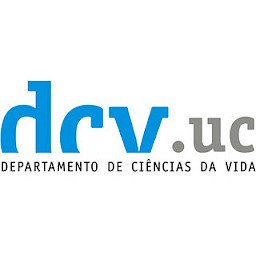Presentation
This PhD program aims to prepare researchers, teachers and other professionals in the field of Biosciences, providing advanced and multidisciplinary training in areas of specialty in Ecology, Cellular and Molecular Biology, Biochemistry, Biotechnology, Microbiology and Neurosciences. A Doctoral Thesis follows the curricular year and is developed for a minimum of 2 years (120 ECTS). Part of the curricular work requirements are fulfilled by attending Advanced courses selected by the student and validated by the Program, ensuring a great deal of flexibility to the program.
General information
- Course coordinator: Prof. Isabel Henriques (isabel.henriques@uc.pt)
- Mobility coordinator: Prof. António Pereira Coutinho (cafe@bot.uc.pt)
- Course type: 3rd Cycle Studies
-
Qualification Awarded: Doutor
- About the course: A Doctoral Thesis is developed for a minimum period of 2 years (120 ECTS), following a first year of course work. Optional course work requirements are fulfilled by attending a variety of advanced courses. The grades obtaned in these courses are then transferred to fixed curricular units, thus ensuring a great deal of flexibility to the program.
It is extremely important to note that the Mandatory units (Thesis Project and Seminars I and II of the different specializations) are carried out in a one-on-one relationship between a Student and a Supervisor, and not in classroom model, common to other study cycles (this the notations in section 2). Each Student is responsible for contacting/choosing a Supervisor who, in turn, will provide a Thesis Topic to be developed in the curricular year, as well as the methodology and activities to be scheduled. The Student must provide a Literature Review on the Topic proposed (Seminar I), possible avenues for future research (Seminar II) and a concrete plan of experimental approaches to be developed as a Thesis in the following years (Thesis Project). The Supervisor will grade these activities, but a Committee named by the PhD Coordinator must validate the Thesis Project, to ensure quality/feasibility. - Candidates: Good candidates for the PhD are students with research work carried out at the Master's level in areas related to the Program (Biology, Cell Biology, Molecular Biology, Ecology, Biochemistry, Biodiversity, Health Sciences, Biotechnology, Genetics, Pharmacy, etc.), or students with relevant curriculum from the point of view of scientific research in these areas.
- Tuition fee: 2.750€
- Scholarships: The Program does not have scholarships and cannot answer any financial questions, which should be addressed to Academic Services. Potential PhD supervisors may have information about grants.
- Supervisors and areas of intervention: The practical component of the PhD in Anthropology is generally carried out in collaboration with Research Centersor other institutions (eg Hospitals).. The training at postgraduate level is of paramount importance in the preparation of specialized researchers, teachers and other professionals in the field of Biosciences. The third cycle aims to provide advanced training and multidisciplinary areas of Ecology, Molecular Cell Biology, Biochemistry, Biotechnology, Bioenergetics, Bioinorganic, and Cell Biophysics Molecular Microbiology, Neuroscience and Toxicology, using the scientific resources of the Department of Life Sciences (DCV), Center for Neuroscience and Cell Biology, Institute of Marine Research-Coimbra (IMAR), “Molecular Physical-Chemistry” R&D Unit and Center for Functional Ecology (CFE).
- Applications: Application submission and information about applications.
-
Specialization areas: Ecology, Marine Ecology, Catchment Ecology, Microbiology, Biochemistry, Cell and Molecular Biology, Neuroscience, Toxicology, Biotechnology, Cellular Biophysics, Molecular Biophysics, Inorganic Biochemistry and in Bioenergetics.
- More information: UC website
Application calendar
SCHEDULE of application actions for doctoral courses, from the publication of vacancies to the date of registration and enrollment.
Course steps
Check all the STEPS of the course by checking the information on this website.
Rules for providing doctoral exams
Check in the DOCUMENT the defined rules and standards that you must follow to give evidence, based on legal regulations.
Doctoral theses presented
You can CONSULT the doctoral theses that were presented at the Department of Life Sciences in the area of Biosciences.

